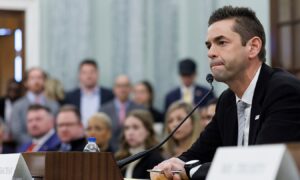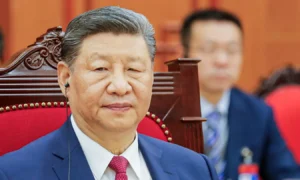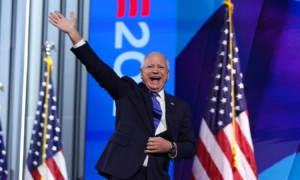A mass of largely Black and Hispanic workers demonstrated outside the statehouse in Albany, New York, in late 2020 to show support for a $15-an-hour minimum wage for tipped workers. A swarm of white people dressed in red MAGA caps approached. The rally occurred on the same day as the state legislature met to certify the results of the 2020 presidential election — and MAGA protestors had gathered to question the count. Conflict is to be expected. However, when some Trump supporters came across employees of colour protesting for higher salaries, they shook hands and supported their cause.
In the conclusion to his ground-breaking new book, Poverty, By America, Matthew Desmond tells this anecdote to propose that a movement to eradicate poverty could transcend our toxically divided politics.
Many Americans are already aware that the essence of Desmond’s thesis is correct: systems are skewed to favour those who are already well-off. He presents a refreshing, brutally honest case that poverty is intentionally persistent in America in order to support the lives of the wealthy. Poverty rates in the United States are far higher and more extreme than in the other 25 industrialised OECD countries, including Australia, Canada, France, Germany, Poland, Portugal, and the United Kingdom.
How did America become a land of economic extremes, with persistent, grinding poverty for those at the bottom — despite the fact that the majority of poor adults who are not seniors work?
Desmond’s most important contribution is shifting the attention away from individual behaviour — the tired focus of so many poverty books — and towards addressing and answering the wider issue, “Who benefits from practises that keep people poor?” Poverty, he claims, is the outcome of three distinctly American practises: exploitation of the poor, subsidised rich, and intentional isolation of the wealthy and the poor, so that opportunity is hoarded and social mobility is rare.
Desmond recognises the significance of anti-Black racism in perfecting Americans’ aversion to spending for government services. Other books deal directly with the “dog-whistling” politics that keep working and middle-class people from voting in accordance with their economic interests. Desmond focuses on exposing the structures that create scarcity and offering solutions.
He paints a vivid picture of the morally ambiguous structures in which we all participate. In an economy where Uber is a word and surveilled and squeezed gig workers answer to — and deliver — our every need, well-paid professionals like myself gain as consumers from the poverty wages paid to others. As firms slash or offshore employment, stagnate pay, and resist unions, our stock investments grow. We get free checking, while the impoverished pay exorbitant fees to banks and “payday” lenders. Meanwhile, zoning regulations that allow only single-family homes create artificial housing scarcity, which raises our property values while putting others at risk of high costs and homelessness. Desmond contends that segregation promotes “private opulence and public squalor,” as wealthy people withdraw from public institutions and society systemically underinvests in the public amenities that ordinary people require.
Desmond also demonstrates how the federal government heavily subsidises the wealthy through the tax code. In 2021, the United States spent $1.8 trillion on tax incentives, foregoing revenue that would otherwise have been paid in taxes, with much of it going to the very wealthy. For example, the United States loses more than $1 trillion in unpaid taxes each year as a result of multinational firms’ and rich families’ tax avoidance methods.
What should be done about this American-designed poverty system? Desmond makes an audacious suggestion. He claims that by collecting unpaid federal income taxes from the wealthiest one percent of households — from eliminating loopholes to going after tax cheats — we could lift nearly every family in America beyond the official poverty level without increasing the debt. This would amount to an estimated $175 billion per year, which would then be used to extend widely popular programmes that directly alleviate poverty, such as the Earned Income Tax Credit. He also argues for structural reforms to reverse practises that restrict impoverished people access to housing, banking, and employment opportunities.
If it’s so simple — as Desmond asserts — to find enough money to end poverty by removing illogical tax loopholes, why don’t we do it? He notes that in 2019, other Western democracies such as France and Germany raised up to 38% of their GDP in tax revenues and invested heavily in public goods, whereas the US raised only 25% of its GDP and “lavished government benefits on affluent families and refused to prosecute tax dodgers.”
Following his research, Desmond asks readers to become poverty abolitionists, spreading an ethic that rejects firms that exploit workers and supports government policies that rebalance the social contract in favour of alleviating poverty rather than assisting elites in increasing their riches. Importantly, he is not advocating for redistribution in general. He contends that if the wealthy pay their taxes and the government ceases over-subsidizing them in favour of investing in the general welfare through aid to the poor, poverty may be abolished without increasing the deficit.
It remains to be seen whether a poverty-abolition ethic can take root or overcome political politics’ rigging, notably by Republican-dominated legislatures that limit majority will through voter suppression and excessive gerrymandering. However, Desmond’s unexpected findings and ideas provide much-needed new thinking.









